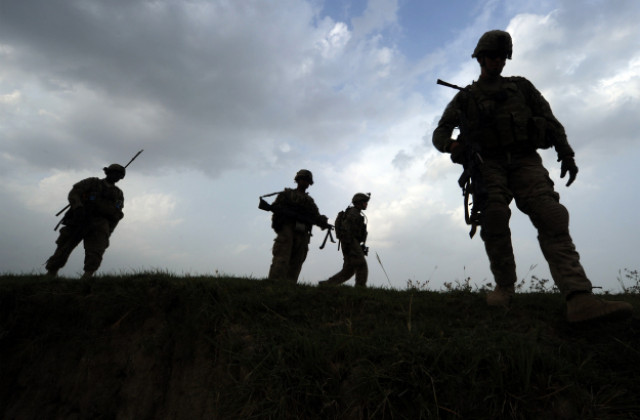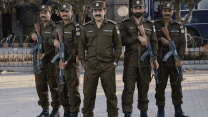Afghan conundrum: Time to revisit Afghan policy assumptions, says experts
Say ground realities different than perceptions in Pakistan.

The US is not losing in Afghanistan and an exit is not it’s only remaining option, as is generally believed in Pakistan.
This was said by senior journalist Ejaz Haider at a roundtable conference organised by the Institute of Regional Studies (IRS) on Wednesday, as he questioned some of the generally held perceptions in Pakistan about Afghanistan.
Haider questioned the hypothesis that Afghan insurgents would wait to strike or that the government in Afghanistan would crumble and the Afghan National Police (ANP) and the Afghan National Army (ANA) would unravel after NATO quits Afghanistan. Contrary to popular belief, NATO pullout might not lead to a situation reminiscent of the 1990s for regional actors like Pakistan to have a more dominant role, he said.
Haider maintained that the US, the ANA and the ANP, had not done as badly in combat as is assumed in Pakistan. He added that NATO had installed institutional structures in Afghanistan which “no matter how imperfect” are capable of operating and sustaining themselves in the future.
Haider called for a synchronisation of Pakistan’s policy on India on both the eastern and western borders. If Pakistan was opening up to India for trade and people-to-people contacts on the eastern border, it needed to evolve some understanding with India over its role in Afghanistan as well, he said.
Speaking on the recently held Chicago summit, Ambassador Ali Sarwar Naqvi, executive director of the Centre for International Strategic Studies, called it “a humiliation for Pakistan”, wherein the head of the state of the host country did not extend the courtesy of a meeting to the Pakistani president. He was of the opinion that in the West, Pakistan is perceived as a state that tolerates, or perhaps supports, terrorism. Naqvi called for a review of Pakistan’s Afghan policy in a way that would put Pakistan ahead of other priorities.
Former Inter-Services Intelligence (ISI) DG Lt Gen (retd) Asad Durrani questioned the perception that the US would want a stable, peaceful, and democratic Afghanistan. He was of the view that he had not seen much of an effort on the part of the US to that end.
Meanwhile, Lt Gen (retd) Talat Masood also called for a review of Pakistan’s Afghan policy, calling it stuck in the past and oblivious of negative consequences for Pakistan.
Furthermore, German Embassy Deputy Head of Mission Stephan Roken urged for greater understanding of the Pakistan narrative in the west and called on the Pakistani government to use every opportunity to help with the peace and reconciliation process in Afghanistan.
Published In The Express Tribune, June 7th, 2012.



















COMMENTS
Comments are moderated and generally will be posted if they are on-topic and not abusive.
For more information, please see our Comments FAQ